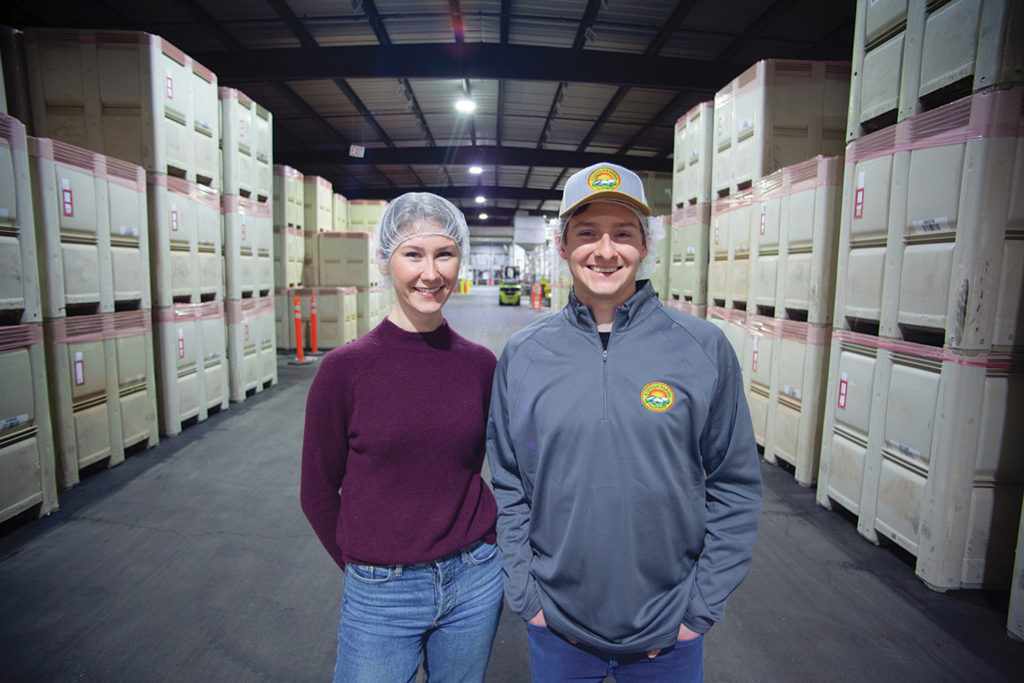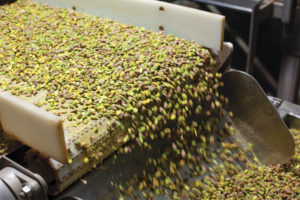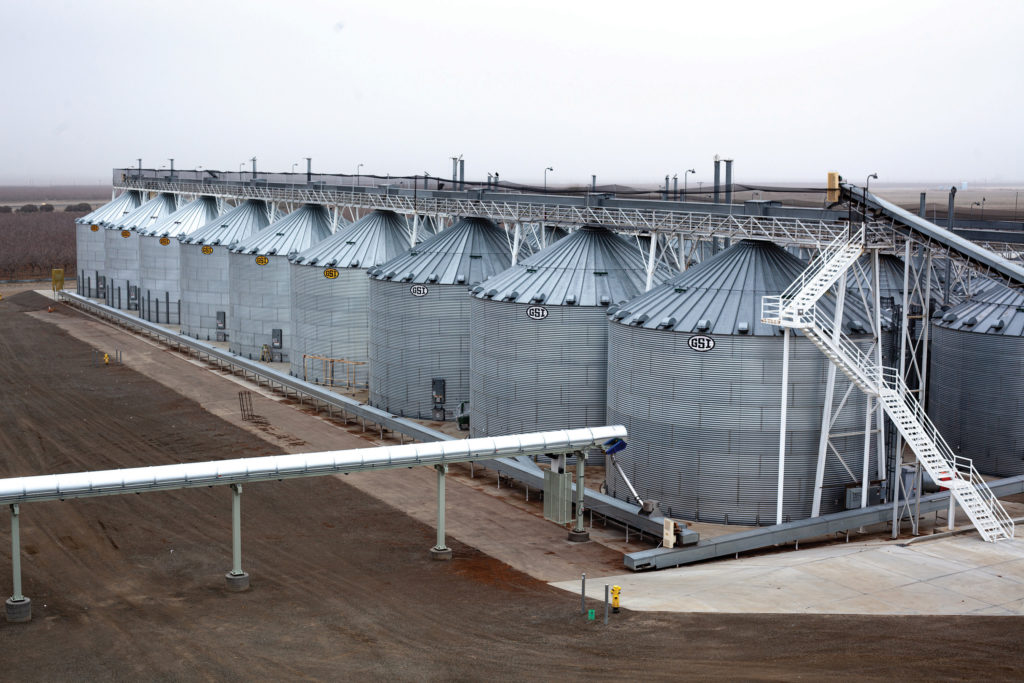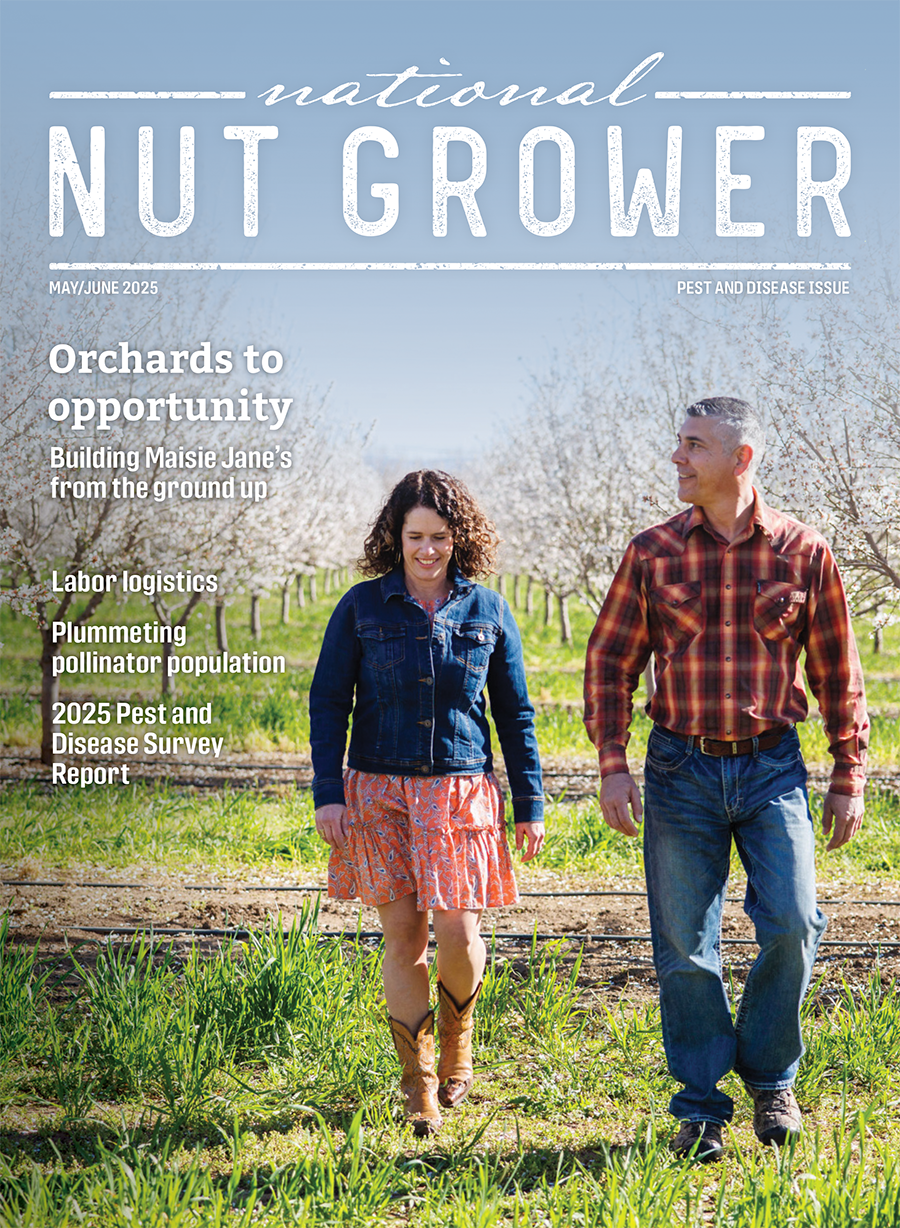
Jan/Feb 2023
Smooth succession
It’s been a successful 50 years for Keenan Farms, a pistachio grower and processor in California’s Central Valley that was founded before the industry began to take shape.
This operation’s history began as a real estate trade — a building in San Francisco for a vineyard in Modesto. But, without enough equity in the farmland, the owner added a plot of land in Kettleman City, where new trees had recently been planted for a Middle Eastern nut tree that still seemed rather exotic.

“No one really knew much about pistachios,” said Elizabeth Keenan, marketing and sales manager, and the farm’s third generation.
Processing was developed through trial and error, using tools from other industries — such as potato peelers and coffee roasters — to figure out an efficient way to process pistachios in an era where this crop was just getting started.
Keenan Farms had its first commercial harvest in 1976, with much of it processed by hand-cranked tools. Today, the operation is highly automated, processes over 30 million pounds annually and has an international presence.
Diving in
Now, the third generation of Keenans is beginning to take the helm. Siblings Elizabeth and Mitchell Keenan have stepped into their respective roles in the family business. Both in their 20s, Elizabeth works in sales and marketing as a manager and will ultimately spearhead the business’s marketing efforts, while Mitchell works as a manager in processing and will ultimately take the lead as company president one day. They have already been directly involved in a recent expansion that increased production capacity by 50%, and when the next phase of the expansion is complete, the operation will have doubled its production.
 “We’re both learning our respective sides of the business, and there’s definitely some overlap, where we both like to assist each other or learn new things,” said Mitchell.
“We’re both learning our respective sides of the business, and there’s definitely some overlap, where we both like to assist each other or learn new things,” said Mitchell.
Farm succession plans can get tricky, especially in families where next generations are not interested in farming. But this isn’t the case with Keenan Farms.
The Keenans began with conversations early about the continuation of the family’s legacy. Not only did Elizabeth and Mitchell grow up around the processing plant as young kids and then work in the business during high school summers, but the family foresaw some potential challenges and tackled them proactively.
“My dad was always pretty transparent with how he envisioned the future of the business, but he always left room for us to do something else,” said Elizabeth. “That open communication was so important.”
It was an opportunity available if the next generation wanted to have it, but there weren’t going to be hurt feelings if they declined.
Mitchell knew from his early years in high school that he wanted to go into the family business. In college, he majored in agriculture business, and it has been a smooth decision and transition for him, giving him a solid start in the business. Elizabeth explored other options — studying English on a pre-law track that carried equal parts creative and professional writing — with the potential goal of lobbying for agricultural producers. It was helpful for learning contract writing and negotiation, as well as marketing. Though agriculture wasn’t her focus in college, Elizabeth has caught up quickly with hands-on experience in the business.

“For kids who might be interested in taking over a family business, leave your options open, but if you’re considering higher education, study something that’s going to be useful whether or not you pursue that family business,” Elizabeth said.
Being realistic about what individual family members’ futures need to look like can be helpful in avoiding potentially tense business transitions. Do the members of the next generation want to work from home and/or run the family business remotely? Will the business require a lot of travel, thus preventing a hands-on, physical presence in the office?
Knowledgeable leadership
For the siblings, Mitchell is seen more often on-site around the processing plant, and Elizabeth may be away more often for industry events, committee meetings, networking and sales functions. With her role being a unique one in the family’s operation — all the marketing for Keenan Farms is currently handled by her and her mother — there must be additional communication with her teams.
“There are a lot of moving parts to this business,” Mitchell said. “It’s important for our whole team, not just the Keenans, to have a good grasp on everything going on. It’s cool to see how much our employees care about what they do, and what other departments are doing.”
Building and maintaining leadership skills are a constant priority for the family, regardless of if those skills stay within the family business. Not only can leadership transitions to the next generation be tricky amongst family members, but it can also affect employees and other industry relations.
“Stepping into a role and being good at it is important regardless of whom you work for,” Elizabeth said, “but I’d say it’s twice as important if you’re working for your family’s business because you have your name on it.”
Siblings Elizabeth and Mitchell Keenan inside the processing plant. Photos: Matt Hannon









